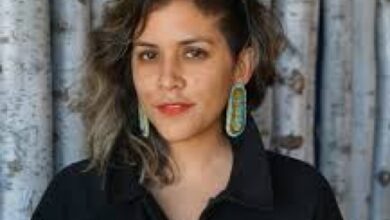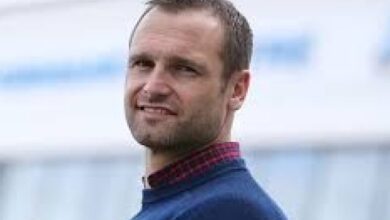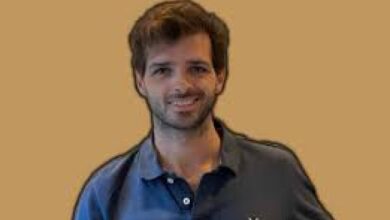Hugh Schofield: The Voice of France for the BBC

Introduction
In the vast landscape of global journalism, few names carry the authority, consistency, and insight that Hugh Schofield commands. As the long-serving BBC correspondent in Paris, Schofield has spent decades interpreting French politics, culture, and society for English-speaking audiences around the world. His calm delivery, factual precision, and ability to humanise complex geopolitical issues have made him a trusted voice in international reporting. This article delves into Hugh Schofield’s early life, education, career journey, and his ongoing influence in shaping how the world perceives France through the BBC lens.
Early Life and Education
The Roots of Curiosity
Hugh Robert Armstrong Schofield was born on 19 August 1961 in Cardiff, Wales. From an early age, Schofield demonstrated an exceptional interest in languages and cultures beyond Britain’s shores. His academic foundation was laid at Clifton College in Bristol, one of England’s prestigious independent schools known for producing some of the nation’s sharpest minds.
A Linguistic Journey at Oxford
After completing his schooling, Schofield continued his pursuit of cultural understanding at St John’s College, Oxford, where he read Arabic and Turkish. His time at Oxford was instrumental in shaping his worldview. The study of these languages demanded not only linguistic skill but also a deep appreciation for history, religion, and the socio-political intricacies of the Middle East — an understanding that would later enhance his global reporting for the BBC.
The Beginning of a Distinguished Career
Early Years at the BBC
Schofield joined the BBC during the 1980s, a period marked by the Cold War and rapid technological transformation in news media. His early assignments reflected the BBC’s trust in his intellectual depth and composure under pressure. He began as a reporter covering international affairs, eventually becoming a correspondent in regions such as the Middle East, Spain, the United States, and the former Yugoslavia.
The Path to Paris
In 1996, Hugh Schofield took up the position that would define his career — BBC’s Paris Correspondent. From the French capital, he has reported on a vast range of topics: from political revolutions and elections to social movements, cultural milestones, and tragic events that have shaped modern France.
Reporting Style and Philosophy
Accuracy Above All
Hugh Schofield’s journalistic philosophy rests on three pillars — accuracy, balance, and cultural understanding. Unlike sensational reporting often found in modern media, Schofield’s work focuses on context and depth. He presents France not as a series of isolated incidents, but as a living, breathing society influenced by centuries of politics, culture, and identity.
A Bridge Between Two Nations
What makes Schofield’s journalism unique is his ability to interpret France for Britain and Britain for France. His reports serve as a cultural bridge, translating the subtleties of French life — whether it’s political upheaval or artistic triumph — into narratives that English-speaking audiences can understand and appreciate. This balance of empathy and objectivity is what defines his long-standing success at the BBC.
Key Coverage and Notable Moments
The Political Pulse of France
As BBC’s Paris correspondent, Schofield has covered numerous French presidential elections, observing the rise and fall of leaders such as Jacques Chirac, Nicolas Sarkozy, François Hollande, and Emmanuel Macron. His reporting provides not just news, but analysis — explaining how these figures represent shifts in French ideology, nationalism, and its relationship with Europe.
Covering National Tragedies
Schofield’s professionalism has shone through in moments of national crisis. He has covered terrorist attacks, major protests like the Gilets Jaunes (Yellow Vest) movement, and the Notre-Dame Cathedral fire with sensitivity and clarity. His tone remains factual yet humane, reflecting empathy for victims and respect for the French spirit of resilience.
Cultural Commentary
Beyond politics and tragedy, Schofield has also highlighted the charm and eccentricity of French life. From culinary traditions and literature to art, cinema, and fashion, he brings a journalist’s curiosity and a storyteller’s warmth. His ability to blend cultural appreciation with factual journalism adds richness to his reports.
The Art of Long-Term Observation
Decades of Change
Having served as BBC’s Paris correspondent for nearly three decades, Hugh Schofield has witnessed the transformation of both France and journalism itself. He has seen France’s struggle with immigration, secularism, and European integration unfold in real time. Through it all, he remains impartial, offering perspectives rooted in observation rather than opinion.
A Witness to History
Schofield’s reports have become a kind of historical record. When future historians look back on the events that shaped France in the late 20th and early 21st centuries, they will find his voice — calm, insightful, and factual — narrating the evolution of one of Europe’s most complex nations.
The Impact of His Work
A Trusted Name in Journalism
In an era where misinformation spreads rapidly and news is often polarised, Hugh Schofield represents the old-school integrity of journalism. His presence on BBC Radio, Television, and online platforms reassures audiences that they are receiving information grounded in truth and fairness.
Educating and Inspiring Future Journalists
Schofield’s career serves as a model for aspiring journalists. His mastery of languages, deep cultural insight, and refusal to sensationalise stories demonstrate the core values of responsible reporting. Many young correspondents view him as proof that journalism can still be a noble profession, driven by curiosity and honesty rather than commercial pressure.
Personal Traits and Professional Ethos
A Voice of Calm Authority
Those who follow Schofield’s work often describe his voice as steady and reassuring. His calm tone, even in moments of chaos, reflects a disciplined mind trained to prioritise truth over emotion.
A Man of Culture
Off camera, Schofield’s interests align with the very culture he covers — French literature, history, and philosophy. His refined understanding of European identity allows him to go beyond headlines and explain why things happen, not just what happens.
Legacy and Continuing Relevance
A Lifelong Dedication
Hugh Schofield’s dedication to journalism is a testament to the importance of cross-cultural communication. For nearly forty years, he has helped English-speaking audiences make sense of France — its politics, contradictions, and its beauty.
The Relevance of Context in Modern Media
As modern journalism becomes increasingly fast-paced and opinion-driven, Schofield’s method reminds us that context remains king. His work underscores that true reporting is not about being the first to break a story, but being the one who tells it best.
Conclusion
Hugh Schofield is far more than a BBC correspondent — he is an interpreter of nations, a guardian of truth, and a storyteller who gives voice to the heartbeat of France. His reports, spanning wars, elections, tragedies, and triumphs, have shaped the way millions perceive Europe’s most enigmatic country. In an age of fleeting headlines, his dedication to accuracy, balance, and humanity stands as a beacon of what journalism can and should be.
For decades, Hugh Schofield has exemplified the essence of responsible journalism — insightful, informed, and deeply human. His name will remain synonymous with the best traditions of the BBC and the enduring power of truth told well.



